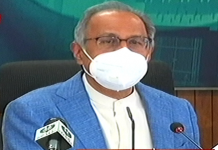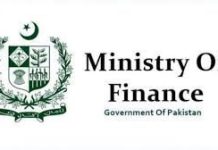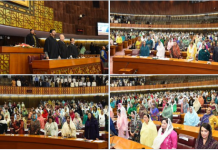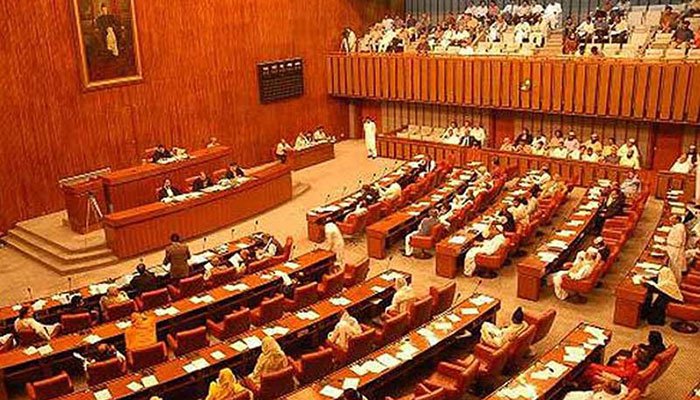مضمون کا ماخذ : sổ kết quả miền bắc
IMF recognises Pakistan’s efforts to strengthen bankruptcy framework
In its Middle East, North Africa, Afghanistan and Pakistan(MENAP) region report released on Wednesday, the International Monetary Fund (IMF) commended Pakistan for its recent efforts to strengthen its bankruptcy framework. The report noted, “improved energy supply, investment related to the China-Pakistan Economic Corridor, and strong credit growth helped to raise Pakistan’s growth to an estimated […]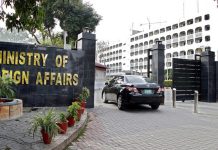
In its Middle East, North Africa, Afghanistan and Pakistan(MENAP) region report released on Wednesday, the International Monetary Fund (IMF) commended Pakistan for its recent efforts to strengthen its bankruptcy framework.
The report noted, “improved energy supply, investment related to the China-Pakistan Economic Corridor, and strong credit growth helped to raise Pakistan’s growth to an estimated 5.6 percent in FY2018, from 5.3 percent last year. However, an increase in macroeconomic vulnerabilities and domestic policy slippages have weakened the outlook, with growth now projected to moderate to 4.7 percent in FY2019.”
The regional outlook issued by the IMF for the MENAP region said “countries in the region should take advantage of the global recovery to accelerate structural reforms that will reduce their reliance on commodities and help build dynamic private sectors. Reforms should focus on measures that improve the business environment.”
The IMF observed growth was recovering in these countries but not by much and gains remained weak. It added real GDP growth in 2017 (1.7 percent) among oil-exporting countries in this region remained subdued and was weaker than what was recorded in 2016.
The global lender of last resort further said this was reflecting the influence of oil production cuts agreed to in the OPEC deal.
But oil exporters in the region experienced an ongoing and broad-based recovery in non-oil activity due to lower fiscal adjustment.
“As the OPEC+ agreement expires and oil production recovers, growth is projected to accelerate this year and next. Nevertheless, at annual 3.6 percent over 2019-23, the medium-term growth in oil-exporting countries is projected to remain well below its pre-2014 oil shock levels.
“Meanwhile, growth in oil importers reached 4.2 percent in 2017 and is expected to increase to 4.7 percent in 2018, before advancing to about 5 percent in 2019-23,” read the report.
About the region not fully benefitting from the global recovery, the IMF said “high or rapidly increasing debt levels have forced countries to take significant measures to reduce deficits, by limiting government spending or mobilizing revenue. These steps will help the region keep its economic house in order, control debt and inflation, and create an environment conducive to sustainable and inclusive growth. However, they can also hold economic growth back.”
“Countries in the region also need to integrate further into the global economy and diversify their products and services. This will require greater access to finance for the private sector (especially small and medium-sized enterprises) and upgrading workforce skills. “Uncertainty surrounding oil prices, rising trade tensions, and the effects of ongoing conflicts and their spillovers have further constrained growth and remain risks going forward.”
The IMF highlighted that average growth of 4.9 percent over 2018-2022 would be too less to decrease unemployment, particularly for young people.
For MENAP region oil importers, which includes Pakistan, it suggested a sustained growth of 6.2 percent annually to absorb the 2.2 percent increase in labour force annually over the next five years.
“Achieving higher growth will require an acceleration in structural reforms that allows the private sector to flourish and generate the required jobs. This is especially critical because the scale of countries’ fiscal vulnerabilities means that the public sector does not have the capacity to absorb the new labour market entrants,” said the IMF.
“However, upcoming elections (Lebanon, Mauritania, Pakistan, Tunisia) and a more challenging political environment could slow the reform process. Moreover, a high perception of corruption and lack of transparency in several countries could not only affect macroeconomic outcomes directly, reducing investment and productivity but could also heighten social tensions and hinder reform,” warned IMF.
Published in Daily Times, May 3rd 2018.


